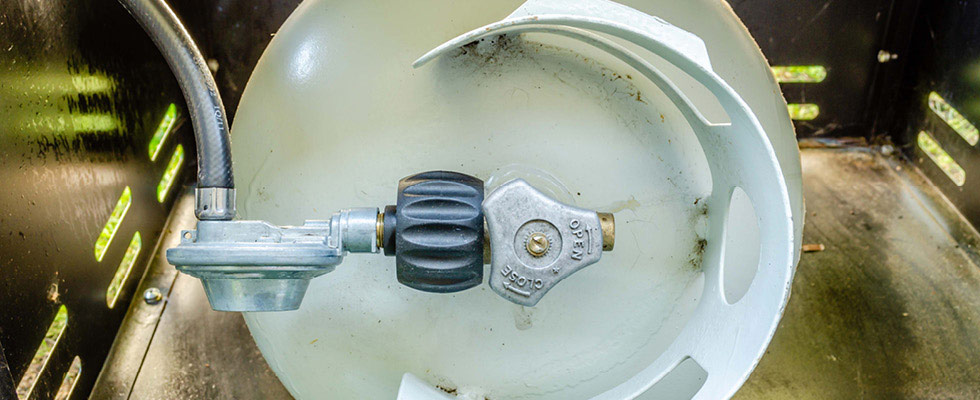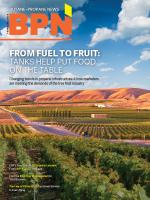
A federal court in Houston, Texas, recently dismissed a personal injury suit against grill manufacturer Weber-Stephens Products. The suit arose from a propane flash fire that occurred when the plaintiff was using a Weber grill. The plaintiff claimed that a connection between the Weber grill and a propane cylinder failed. The case is Kallus v. Weber-Stephens Products.
Aftermarket Regulator Hose
In 2011, Joseph Kallus obtained a propane-fueled grill. This grill came with a Cavagna regulator hose that connected the propane cylinder to the grill. The grill was apparently used for approximately six years without incident. However, in about 2017, Kallus replaced the Cavagna regulator hose with an aftermarket regulator hose manufactured by Chen Fong, a Taiwanese company. The Chen Fong hose was not a Weber-certified part. This presented a problem because the hose was 5 to 6 inches shorter than the Weber-certified part manufactured by Cavagna. A shorter hose has less slack, and this could increase the side load on the fittings at either end, especially the fitting that connected the hose to the propane cylinder. Increased side load could result in the failure of the fitting.
Outside the Cabinet
Kallus compounded this problem by positioning the propane cylinder outside the grill cabinet, again in violation of the safety instructions contained in the manual for the grill. This increased the distance between the outlet connection on the cylinder and the inlet connection on the grill, and further increased the side load on the fittings at either end of the regulator hose. This was the situation on June 12, 2019. Kallus had just acquired a 20-pound propane cylinder, apparently through a cylinder exchange program. He connected this cylinder to the grill using the Chen Fong regulator hose. He positioned the cylinder outside the grill cabinet. He apparently did not check his connections for leaks as recommended in most grill manuals, although the court’s opinion is unclear on this point.
At about 9 p.m., Kallus lit the grill. He was planning to grill a steak. He left the grill unattended to preheat and went inside for 10 to 15 minutes (another violation of the grill’s safety manual — he should not have left the grill unattended with the burners on). When he returned to check on the status of the preheating, he saw that it had not heated up to the level he wanted.
Kallus apparently felt that there was a loose connection that prevented enough gas from getting to the burners. So, he reached down to attempt to tighten the connecting nut between the regulator hose and the cylinder. This was yet another violation of the safety manual. He should first have turned the propane cylinder valve, as well the grill burners, to the off position. Within seconds of attempting to tighten the connection, there was a flash fire. Kallus was seriously injured, sustaining burns to his chest, hands, pelvic area and legs. His wife rushed out of the house to assist him and transported him to the hospital.
Kallus and his wife filed a product liability suit against Weber, alleging failure to warn of the potential hazards associated with its use, as well as breach of warranty. They contended that the Weber manual should have specifically admonished users to not touch or tighten the nut connecting the regulator hose and the cylinder while the grill was in operation. They also claimed that the manual should have specifically warned about the hazards presented by side load on the connections.
However, the Kalluses presented no expert testimony in support of their warning claims. Weber filed a motion for summary judgment. It focused on the failure to present expert testimony establishing a causal link between the alleged product defect and the incident. In particular, Weber argued that expert testimony was necessary to support the warning claim, and that without such testimony the lawsuit must be dismissed. The Kalluses responded that expert testimony was unnecessary and that a jury could “readily understand” the warning issue. The court disagreed:
“This case deals with complex issues regarding the design and manufacture of propane gas grills, regulator valves, face seals, and pressurized gas cylinder tanks. Moreover, to discern the validity and strength of plaintiffs’ claims, the jurors would need to possess a firm knowledge of pressure vessels, the behavior of propane gas under pressure, and regulator valves, among other complex issues of physics and chemistry. Further, to demonstrate that a differently designed system would have prevented the accident, the jurors must be able to grasp the potential design flaws in Weber’s grill, the Chen Fong regulator valve, and the propane tank. Laypeople cannot easily understand these issues and therefore they require expert testimony.”
The court found that the Kalluses had “offered no expert critical of Weber’s warnings. In fact, their fire and explosion expert testified that he was expressing no opinion on Weber’s warnings.” And the court noted that the Kalluses’ expert had admitted that the accident would not have happened if Kallus had simply followed the instructions in the Weber safety manual.
Manufactured by Others
The court also rejected the breach of warranty claim. The Kalluses claimed that the leak occurred because of defects in the regulator hose and propane cylinder. But these components were manufactured by others, not Weber. This, held the court, was fatal to the breach of warranty claim. Finally, the Kalluses claimed that Weber’s advertising warranted that the grill was safe and properly designed. But the court rejected this claim because there was no evidence that the Kalluses relied on that advertising:
“Here, plaintiffs allege that Weber induced them to buy the grill in question because Weber stated in advertising materials that the grill was “safely designed, tested and manufactured.” In Plaintiffs’ view, this statement created an express warranty, which Weber breached by providing a grill which was unsafe. Whether this was a factual statement or mere puffery is irrelevant. Plaintiffs have failed to provide evidence that they relied on this advertisement to purchase their grill. Indeed, plaintiffs admit that they purchased the grill using points accrued in an employee rewards program and made the purchase through that program, rather than directly through Weber or a retailer. There is no evidence to suggest that plaintiffs saw the advertised statement and then acted relying on that information to purchase the grill.”
It does not appear that an appeal of the court’s decision has been filed. The Kallus case is one of several recent decisions in cases involving the alleged failure of a connection between a propane grill and a propane cylinder (see BPN’s November 2021 and July 2022 issues). A common theme running through these cases is the failure of plaintiffs to heed safety warnings and instructions. Here, Kallus violated four, and perhaps five, of the safety instructions in the Weber manual. Hopefully the court’s decision in his case will serve as a benchmark for any future litigation in this area.


